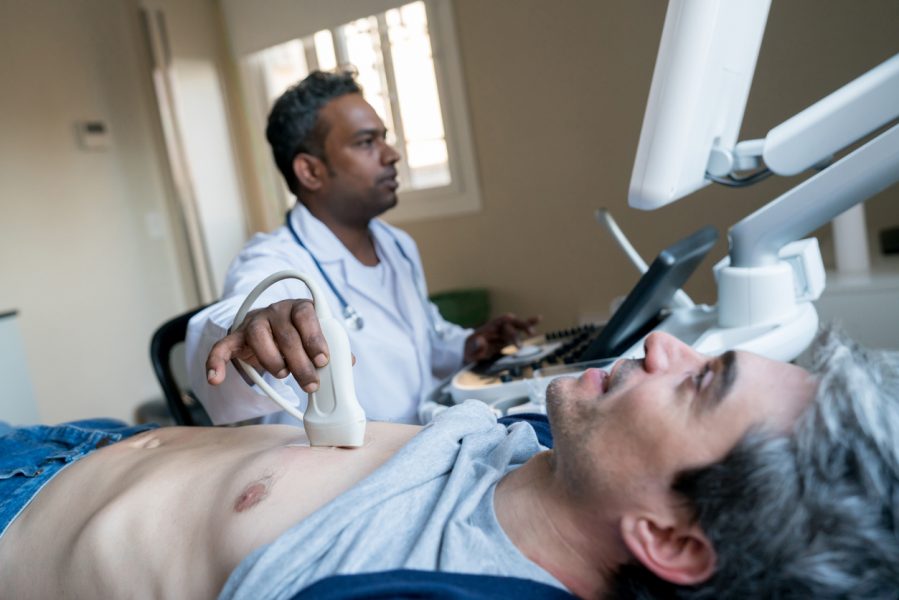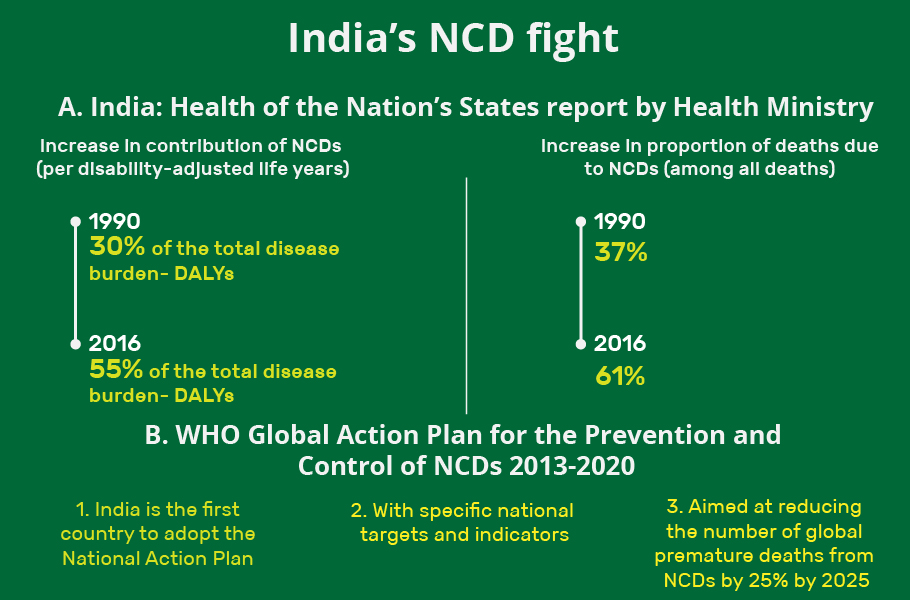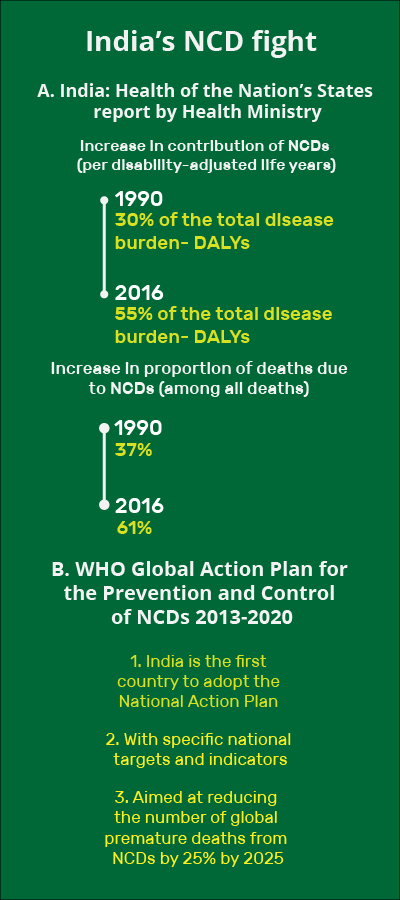
Beware of non-communicable diseases: Experts warn amid COVID-19
Doctors warn against rising NCDs in the middle of the pandemic. Lack of spaces to exercise, long hours in front of the screen, and inaccessible medical services are some of the factors to watch out for.

Bhanupriya, a 60-year-old diabetic woman, who underwent a knee replacement surgery, is scared that she might become overweight again.
After the surgery, she reduced 20 kilos and has been keeping her sugar levels in check. However, in the last two months, without her evening walks in the open, she has been managing by walking on the terrace.
She said, “I cannot walk beyond 20 minutes in that area, as it is too small and I feel giddy. I have been advised by my doctor to walk for at least 40 minutes to one hour every day.”
India has a huge burden of non-communicable diseases with over 5 million people dying due to cardiovascular diseases, hypertension, diabetes, cancer, and respiratory ailments.
Since the lockdown was implemented exactly two months ago, to combat COVID-19, many across India, like Bhanupriya, have been struggling to stick to their exercise regimen.
Related news: COVID-19 pandemic halts vaccination for nearly 80 million children
Doctors warn against rising NCDs in the middle of the pandemic. Lack of spaces to exercise, long hours in front of the screen, and inaccessible medical services are some of the factors to watch out for.
Dr V Mohan, chairman, Dr Mohan Diabetes Specialties Centre, said that a study the team at his centre conducted via telephone, by collecting details of about 3,000 of their patients from across the country — Tamil Nadu, Telangana, West Bengal and Odisha, among others states — revealed that exercise has come down drastically during lockdown.


“Though it was a mixed bag of responses regarding diet regimen, exercise time has been considerably reduced in this period. There is a lot of stress among the average crowd and anxiety and depression that are linked to obesity, diabetes and heart disease as there is binge eating due to the high stress levels,” he added.
He also said that walking in fresh air has its own set of advantages like inhaling oxygen from the trees, sensory stimulus from greenery and chirping birds.
“The walking tracks uniformly have been closed and inaccessible. While some are undergoing group exercises through online apps, it is still a small group,” he said.
Children too at risk
With children being hooked to gadgets for studies, in the backdrop of schools conducting lessons online, they also tend to turn to it for entertainment and during pass time.
A study carried out in Italy called ‘Effects of COVID-19 Lockdown on Lifestyle Behaviors in Children with Obesity Living in Verona, Italy’ found a higher intake of junk food like potato chips and sugary aerated rinks among children and adults who are already obese, apart from higher consumption of red meat.
The study also said that being indoors reduced their participation in sports activity and screen time.
Dr Usha Sriram, endocrinologist-diabetologist, said that a similar trend is noticed during summer holidays.
Related news: COVID-19 impact: Mothers and babies bear the brunt of lockdown
“During this pandemic, they are not following their routine —of having breakfast, eating at a particular time in school and some are even eating late and sleeping late. We have heard from some that at home, they are being pestered by their kids to make snacks all due to boredom. Now, we also have food being delivered at home and the online classes for long hours can be a drab, making them to snack and eat more,” she explained.
True to her words, a mother of two boys aged 10 and 12 years old, Padma B, a resident of Chennai, shared her concerns.
“My younger son has gained excessive weight—at least 10 kilos, in the lockdown. I can’t wait for the parks to open for him to continue his football sessions,” she said.
Time to address it
Dr Usha said that she suspected that in the coming days, the pandemic would have opened floodgates for NCDs in the country.
“I am seeing many patients with high pressure levels and sugar levels in my practise, since I resumed consultations from May 1. In the low resource settings or in the informal sector, many who have lost their jobs or have not received pay, have not been able to buy medicines and there is no transport for them to visit doctors. Some have been just scared to visit hospitals due to the pandemic. We are now looking at promoting use of masks and sanitisers to stay safe in the pandemic. However, we should also be looking at ways to identify people with the risks as well and screen them,” she said.
Young people who died due to COVID-19 have largely been obese with the other underlying factors like diabetes or respiratory problems, sleep apnoea and snoring, observed Dr Mohan.
Related news: Testing not enough, scientists examine sewage to gauge COVID-19 spread
“So, we need to address the rising rates, as the pandemic will be around for a while,” he said.
Dieticians like Dharini Krishnan have been conducting skype consultations with those who have reached out for help regarding weight, supplemented with simple exercises that can be done at home.
“Many are parents with adolescent kids, while some are middle aged and those with NCDs. Then I ask them to go for simple home exercises like yoga asanas and surya namaskars, apart from resistance exercise, squats and skipping,” she said.
The lockdown is also the ideal time for parents to set their child’s routine right, said Dr J Dhivyalakshmi, paediatric-endocrinologist.
“The meal timings have to be fixed and they should limit the number of times they make sugar high food items. This could actually be an opportunity for them to make lifestyle modifications, as the child is entirely under the watch and care of family members,” she said.


